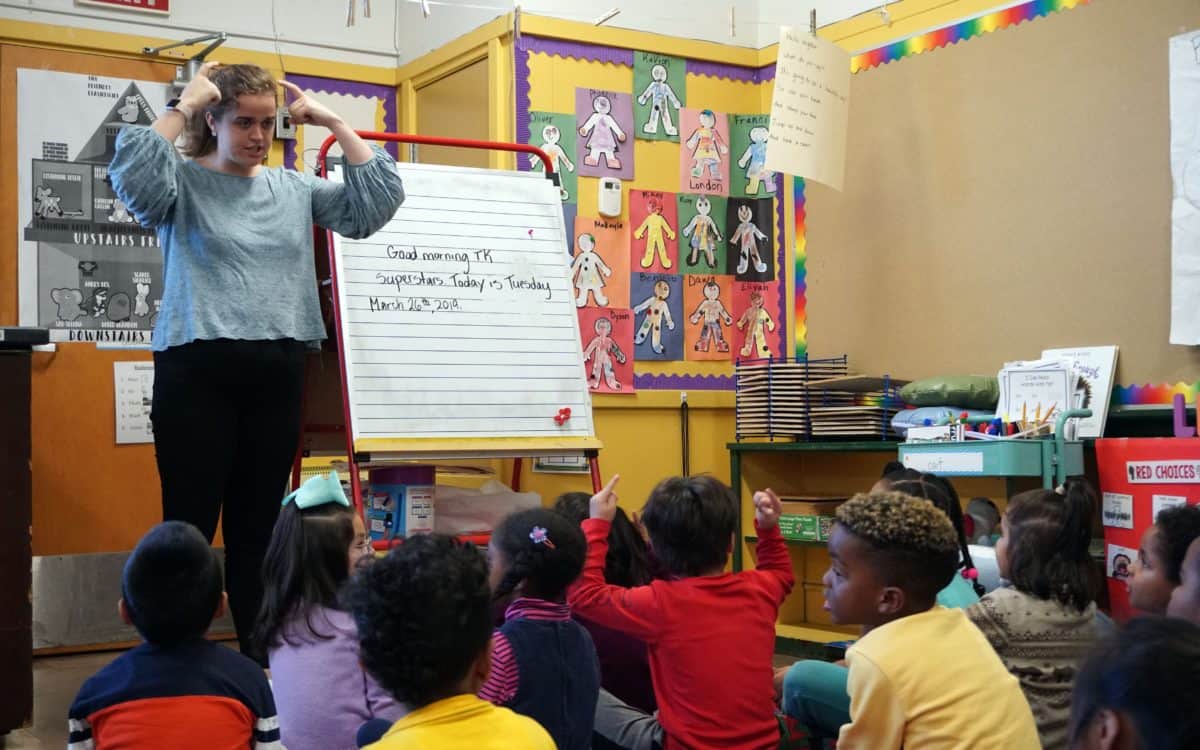Lifestyle, Opinion
Teachers Are Not Heroes; They’re Professionals

Image Credit: ANDREW REED/EDSOURCE
In the 2020-2021 teaching year, 1 in 4 US teachers considered quitting their job. While the feared mass exodus of teachers doesn’t seem to have occurred, schools are largely facing other staffing shortages, making the jobs of teachers more stressful. Throughout the US, non-teaching roles in schools such as bus drivers, substitute teachers, school nurses, cafeteria workers, janitors, and other professionals that aid teachers in managing their workloads are quitting in droves.
Why do these people quit and not teachers? The answer is pretty simple: teachers have hero jobs, and bus drivers do not.
BS Jobs, Hero Jobs
In his monumental 2018 book Bullsh*t Jobs: A Theory, anthropologist David Graeber posits that up to half of all jobs in society are entirely pointless. In his interview with Vox, Graber defines BS jobs as “… jobs which even the person doing the job can’t really justify the existence of, but they have to pretend that there’s some reason for it to exist.” An example Graeber gives of people with BS jobs is corporate lawyers. According to Graeber, “Most corporate lawyers secretly believe that if there were no longer any corporate lawyers, the world would probably be a better place.”
Clearly, teachers do not have bs jobs. Instead, teachers have hero jobs. Abigail Thorn of Philosophy Tube describes hero jobs as “a job that absolutely has to be done no matter what.” Examples of hero jobs are doctors, firefighters, police officers, and teachers. People with hero jobs often get emotional fulfillment knowing that they are contributing to the betterment of society. However, Thorn notes that “Here in the UK, we’re starting to see the idea of hero jobs used as a tool of workplace discipline… When teacher’s unions, which is to say teachers, expressed doubt about the safety of opening schools again, the Daily Mail ran the headline, ‘Let Teachers Be Heroes.’ If your job is a heroic one, then anything that stops you doing it is villainous.”
Teachers have also noticed the rhetoric of heroism being used to exploit them. One anonymous source begs, “please, for the love of god, stop calling me a rockstar. I’m sick of it. At this point, it makes me angry and is used solely to get more from teachers.”
The BS of Teaching
When conducting an informal survey among teachers, most of them cite “bureaucracy” and “box-ticking exercises” as the worst aspect of their jobs. Many expressed frustration with being asked to teach more material increasingly while losing more instruction days to standardized testing.
Another anonymous source states, “when I got into the profession, I thought that my job would be enlightening young minds to the glorious history of the world. In reality, my job is making sure kids are fed, emotionally stable, safe at home, dressed appropriately, entertained, passing class, able to do executive functions (planning, time management, interpersonal relationship, etc.) I’m sure I could go on; the absolute last thing I teach is content.”
Even though teachers get into teaching because they genuinely want to educate, many of them are given so many non-teaching tasks that the most important aspect of their job becomes the lowest priority. Of all teachers surveyed, every single one of them said they worked unpaid hours. One former teacher “Tori,” says she quit teaching because it “completely takes over your life. There wasn’t a day of the week I didn’t do something teaching-related, and it was no longer sustainable.”
What Do We Expect From Our “Heros?”
One of the most challenging aspects of being a teacher is the many expectations on the teacher and few clear expectations set on parents and students about their involvement with education. As another former teacher, “Jake,” puts it “Parents expected me to get their kid to do stuff they themselves couldn’t get their own kid to do. They expect me to parent, teach, mentor, motivate, advise, and coach, but then when I tried they came down on me for not doing it exactly like they wanted.”
There is an absolute double standard when a student is struggling: the parents can accuse the teacher of being a bad teacher, but the teacher can never so much as imply that the parent is a bad parent.
Students also have little to no accountability for contributing to a healthy learning environment. A single misbehaving student can completely disrupt a lesson and impact other students’ ability to learn. Of course, teachers are expected to manage their classrooms, but how much classroom management can be done when the teacher has limited ability to discipline the student, and parents are not held accountable for their child’s behavior?
Many of the teachers we interviewed also stated that teaching had a negative impact on their mental health. As Tori puts it, “I was close to burnout. I spent all my time worrying I wasn’t good enough; when you have hundreds of students relying on you, that’s a big deal. I also didn’t have any real free time. I’d work every day of the week and never get a break. I am still dealing with the consequences of this.”
Heroes Need to be Paid Too
Even though there hasn’t been the feared mass exodus of teachers, schools are still in precarious positions. Teachers are starting to quit, and the support structures around them are crumbling. We need to stop seeing teachers as “heroes” and start treating them like skilled laborers. Teachers need better pay, more professional support, and more support from parents and administration.
People should not be expected to take a pay cut for having a job that genuinely contributes to society. Heroism and valor are not a replacement for adequate compensation. As a society, we need to feel less entitled about labor we deem “heroic.”

